第559章
(12) Here is a plain example of a Jewish lady giving a bill of divorce to her husband, though in the days of Josephus it was not esteemed lawful for a woman so to do.See the like among the Parthians, Antiq.B.XVIII.ch.9.sect.6.However, the Christian law, when it allowed divorce for adultery, Matthew 5:32, allowed the innocent wife to divorce her guilty husband, as well as the innocent husband to divorce his guilty wife, as we learn from the shepherd of Hermas, Mand.B.IV., and from: the second apology of Justin Martyr, where a persecution was brought upon the Christians upon such a divorce; and I think the Roman laws permitted it at that time, as well as the laws of Christianity.Now this Babas, who was one of the race of the Asamoneans or Maccabees, as the latter end of this section informs us, is related by the Jews, as Dr.Hudson here remarks, to have been so eminently religious in the Jewish way, that, except the day following the tenth of Tisri, the great day of atonement, when he seems to have supposed all his sins entirely forgiven, he used every day of the whole year to offer a sacrifice for his sins of ignorance, or such as he supposed he had been guilty of, but did not distinctly remember.See somewhat like it of Agrippa the Great, Antiq.B.XIX.ch.3.sect.3, and Job 1:4, 5.
(13) These grand plays, and shows, and Thymelici, or music meetings, and chariot races, when the chariots were drawn by two, three, or four pair of horses, etc., instituted by Herod in his theatres, were still, as we see here, looked on by the sober Jews as heathenish sports, and tending to corrupt the manners of the Jewish nation, and to bring them in love with paganish idolatry, and paganish conduct of life, but to the dissolution of the law of Moses, and accordingly were greatly and justly condemned by them, as appears here and every where else in Josephus.Nor is the case of our modern masquerades, plays, operas, and the like "pomps and vanities of this wicked world," of any better tendency under Christianity.
(14) Here we have an eminent example of the language of Josephus in his writing to Gentiles, different from that when he wrote to Jews; in his writing to whom he still derives all such judgments from the anger of God; but because he knew many of the Gentiles thought they might naturally come in certain periods, he complies with them in the following sentence.See the note on the War.B.
I.ch.33.sect.2.
(15) This famine for two years that affected Judea and Syria, the thirteenth mid fourteenth years of Herod, which are the twenty-third and twenty-fourth years before the Christian era, seems to have been more terrible during this time than was that in the days of Jacob, Genesis 41., 42.And what makes the comparison the more remarkable is this, that now, as well as then, the relief they had was from Egypt also; then from Joseph the governor of Egypt, under Pharaoh king of Egypt; and now from Petronius the prefect of Egypt, under Augustus the Roman emperor.
See almost the like case, Antiq.B.XX.ch.2.sect.6.It is also well worth our observation here, that these two years were a Sabbatic year, and a year of jubilee, for which Providence, during the theocracy, used to provide a triple crop beforehand;but became now, when the Jews had forfeited that blessing, the greatest years of famine to them ever since the days of Ahab, 1Kings 17., 18.
(16) This Aelius Gallus seems to be no other than that Aelius Lagus whom Dio speaks of as conducting an expedition that was about this time made into Arabia Felix, according to Betarius, who is here cited by Spanheim.See a full account of this expedition in Prideaux, at the years 23 and 24.